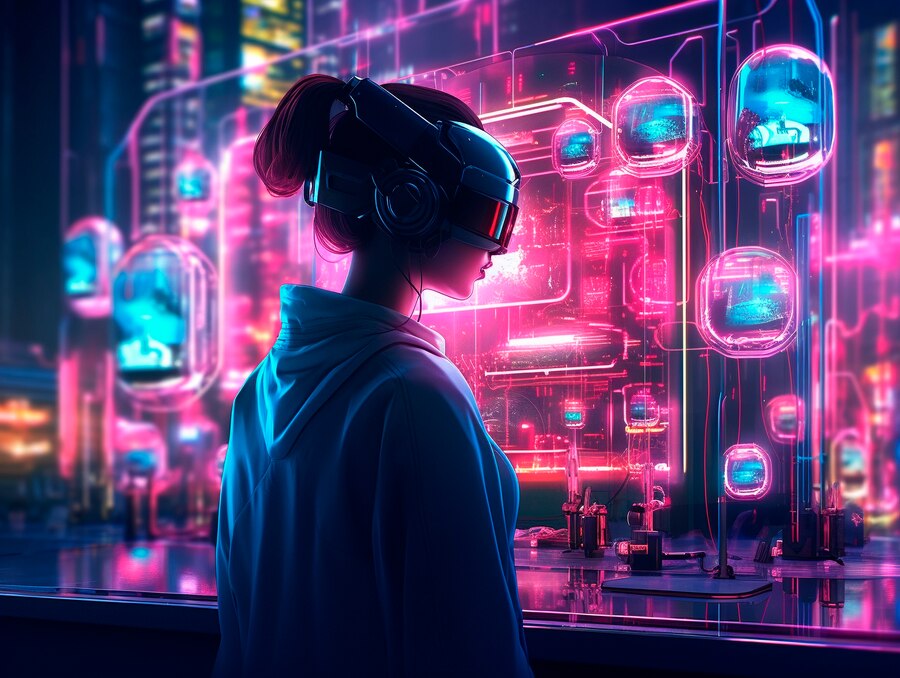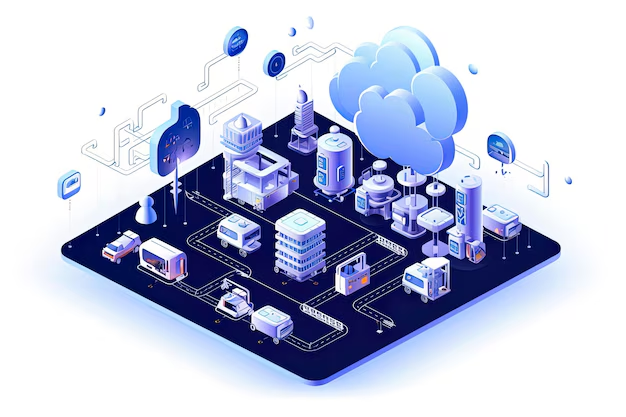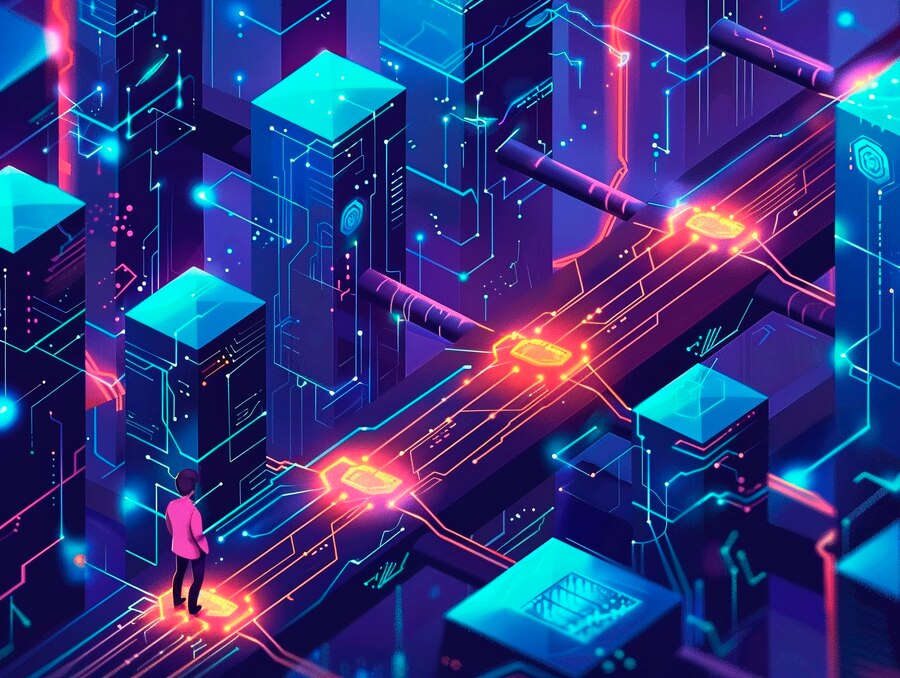Working Hours: Monday - Saturday, 10 AM - 7 PM
Blog Posted on 07 September, 2024 - 22:39 PM

Exploring the Next Frontier: The Internet of Things
The Internet of Things (IoT) has emerged as a revolutionary force, transforming the way we interact with technology and the world around us. As we navigate this rapidly evolving landscape, it's clear that IoT is not just a trend but a fundamental shift that is reshaping industries, enhancing daily life, and driving innovation. This blog delves into how Io IoT is becoming the next frontier in technological advancement, its impact on various sectors, and what the future might hold.
Understanding the Internet of Things
At its core, the Internet of Things refers to the network of interconnected devices that communicate and exchange data through the internet. These devices, which can range from everyday household items like smart thermostats and refrigerators to sophisticated industrial machinery, are embedded with sensors, software, and other technologies. This connectivity allows them to collect and share data, enabling more intelligent and automated interactions.
The potential of IoT is immense. By linking devices and systems, IoT creates a more integrated and responsive environment. For instance, smart home systems can learn from user behavior to optimize energy consumption, enhance security, and improve comfort. In industrial settings, IoT enables real-time monitoring of equipment, predictive maintenance, and streamlined operations. This interconnectedness is paving the way for new possibilities and innovations.
The Impact on Various Sectors
- Healthcare
- Transportation and Logistics
- Smart Cities
- Agriculture
One of the most transformative applications of IoT is in the healthcare sector. IoT devices, such as wearable health monitors and smart medical equipment, provide valuable insights into patients' health and well-being. These devices can track vital signs, monitor chronic conditions, and even administer medication. The real-time data collected helps healthcare professionals make more informed decisions, improve patient outcomes, and reduce costs. Remote patient monitoring is becoming increasingly common, allowing individuals to receive care without frequent hospital visits.
IoT is revolutionizing the transportation and logistics industry by enabling smarter and more efficient operations. Fleet management systems use IoT to monitor vehicle performance, track location, and optimize routes. This data-driven approach enhances operational efficiency, reduces fuel consumption, and improves safety. Additionally, IoT applications in supply chain management enable real-time tracking of goods, ensuring better inventory control and reducing the risk of theft or loss.
The concept of smart cities is gaining traction as urban areas seek to address challenges such as congestion, pollution, and resource management. IoT plays a crucial role in this vision by providing the infrastructure for smarter urban environments. For example, smart traffic management systems use real-time data to optimize traffic flow and reduce congestion. Environmental sensors monitor air quality, and smart lighting systems adjust brightness based on ambient conditions. These innovations contribute to a more sustainable and livable urban experience.
Agriculture is another sector benefiting from IoT advancements. Precision agriculture, powered by IoT, allows farmers to optimize crop yields and resource usage. Sensors in the field monitor soil moisture, weather conditions, and crop health, providing valuable data for decision-making. This data-driven approach helps farmers make more precise irrigation and fertilization decisions, leading to increased productivity and reduced environmental impact.
The Challenges and Future of IoT
While the potential of IoT is exciting, it is not without challenges. Security and privacy concerns are paramount, as the proliferation of connected devices increases the risk of cyberattacks and data breaches. Ensuring robust security measures and protecting sensitive information is crucial to maintaining trust and safety in the IoT ecosystem.
Additionally, interoperability remains a challenge. With numerous manufacturers and standards in the IoT space, achieving seamless integration between different devices and systems can be complex. Efforts are underway to develop standardized protocols and frameworks to address this issue and facilitate smoother interactions between devices.
Looking ahead, the future of IoT promises continued innovation and growth. Advances in artificial intelligence (AI) and machine learning (ML) are expected to enhance the capabilities of IoT devices, enabling even more intelligent and autonomous systems. The expansion of 5G networks will further accelerate IoT development by providing faster and more reliable connectivity.
As IoT continues to evolve, we can anticipate new applications and use cases emerging across various sectors. The convergence of IoT with other technologies, such as blockchain and edge computing, will likely open up new possibilities and drive further advancements.
“Venturing into the Internet of Things reveals a future where connectivity and intelligence drive innovation and transform our interactions with technology.”
Conclusion
The Internet of Things is undeniably shaping the future of technology and transforming various aspects of our lives. From healthcare and transportation to smart cities and agriculture, IoT is driving innovation, efficiency, and connectivity. While challenges remain, the potential benefits far outweigh the obstacles, making IoT an exciting frontier in technological advancement. As we explore this next frontier, it is essential to stay informed, adapt to changes, and embrace the opportunities that IoT presents. The journey ahead promises to be both transformative and exhilarating, paving the way for a more connected and intelligent world.
Insightful Blogs
Discover insightful blogs that offer valuable perspectives, expert opinions, and engaging content on the latest trends and developments.
Get In Touch
With Us
We are headquartered in Kolkata, India. Send us your message and we shall get back to you soon.
Come and See the Future with Us
Let's make something great together. We are trusted by over 50+ clients. Join them by using our services and grow your business.




